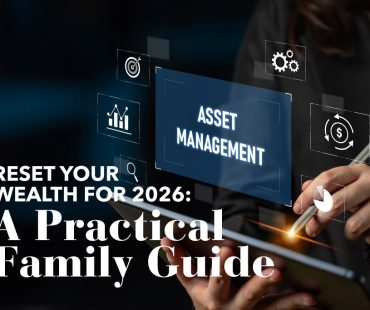As you begin the second half of the year, take the time to reflect on your goals and make plans for the coming months. While financial checks and health resolutions are common, one important aspect is sometimes overlooked: your Will.
Your Will is a legal tool for protecting your loved ones and distributing your estate exactly how you want. However, life changes quickly, and what was once an impeccable plan may no longer be relevant in your current situation.
The Core Components of a Will
To understand why regular updates are so important, it helps to revisit the key elements that make up a legally binding Will:
1. Testator’s Information
This establishes the identity of the person creating the Will (the testator). It is essential for confirming your intentions and ensuring there is no ambiguity about who the document belongs to.
2. Declaration of Intent
This section states clearly that the document is meant to be your last Will and Testament. Without it, your Will might not be considered valid in court.
3. Beneficiary Designations
Perhaps the most personal part, this outlines how you want your assets distributed after your death. Changes in family dynamics, financial situations, or personal relationships often mean these designations need updating.
4. Executor Appointment
This names the person or party who will carry out your wishes and manage your estate. Your chosen executor should always be someone you trust and who is capable of handling this important responsibility.
When Should You Update Your Will?
Experts recommend reviewing your Will at least every five years, or sooner if you experience major life changes. These changes can include:
- Marriage or divorce (a Will is not automatically revoked upon separation or divorce)
- The birth of a child or grandchild
- Acquiring or selling major assets, like a home or business
- Changes in financial circumstances or new investments
Update or Create a New Will?
It’s important to note that once a Will has been signed and witnessed, you cannot simply cross out sections to make changes.
There are two main options:
1. Amend your Will using a codicil
A codicil is an official document that legally modifies your existing will. While this works for minor changes, it may not be sufficient for significant updates.
2. Execute a new Will
If you have multiple or major changes, it is generally advisable to write a new Will. Your new Will should clearly state that it revokes all previous Wills and codicils to avoid confusion. Once created, you should destroy your old Will and inform your executor of the new document’s location.
CONNECT WITH SUMMIT PLANNERS
If you’re unsure whether you need an amendment or a completely new Will, consulting an estate planning specialist can provide the guidance you need.
Contact Summit Planners to schedule a consultation. We will ensure your assets are distributed exactly as you intend and your loved ones are taken care of according to your most up-to-date plans.
Sources:
- https://www.manilatimes.net/2024/09/23/tmt-newswire/pr-newswire/summit-planners-will-planning-for-different-life-stages/1973437
- https://www.aarp.org/money/personal-finance/times-to-update-your-will/
- https://www.forbes.com/sites/christinefletcher/2020/04/15/6-parts-of-your-estate-plan-you-should-review-now/
- https://investor.vanguard.com/investor-resources-education/beneficiaries
Disclaimer:
The information provided is for general information only and does not constitute financial advice. While we have taken care to check the source of the information, we cannot guarantee that the information is accurate, complete, or will suit your individual financial needs. You are advised to seek professional assistance.
Share on Facebook Share on LinkedIn Share




